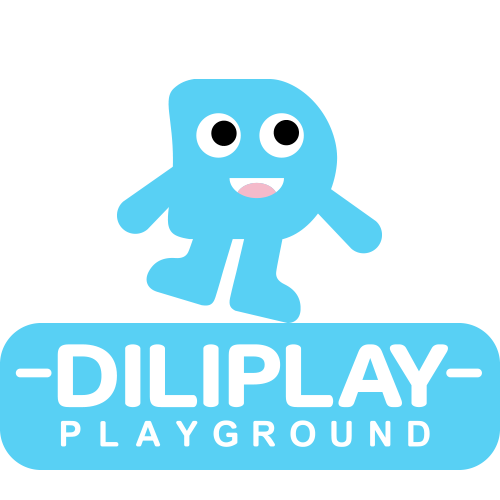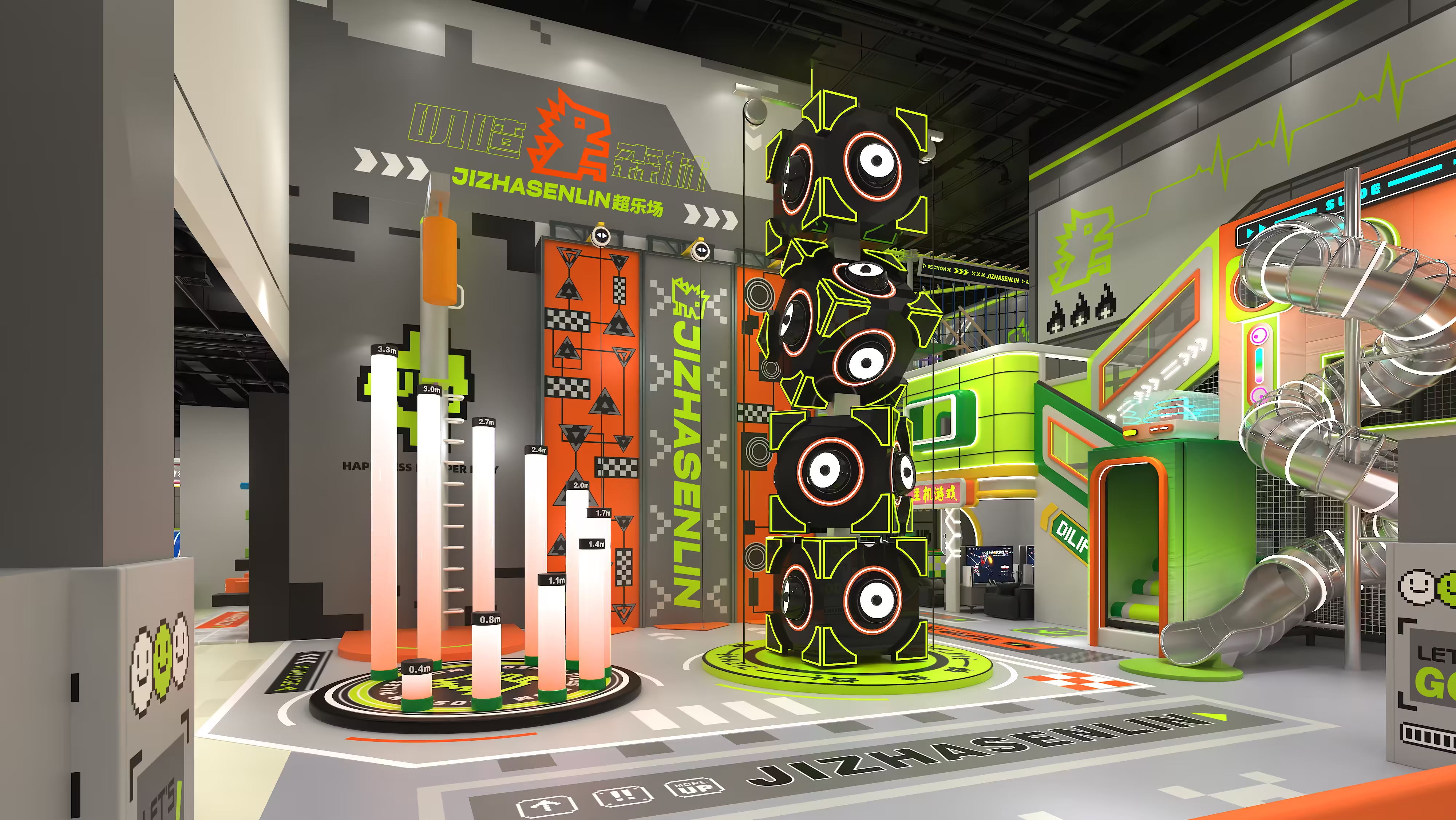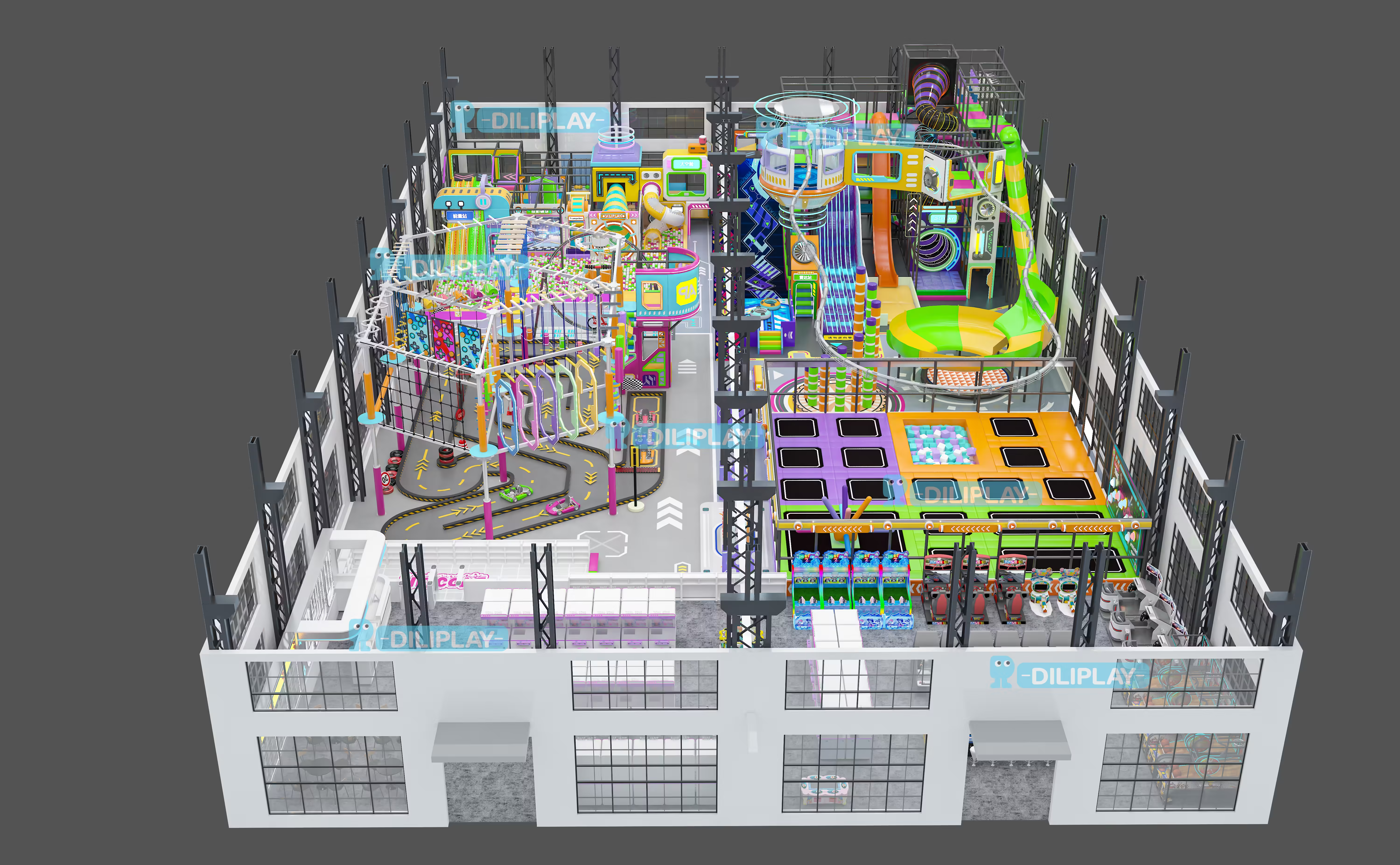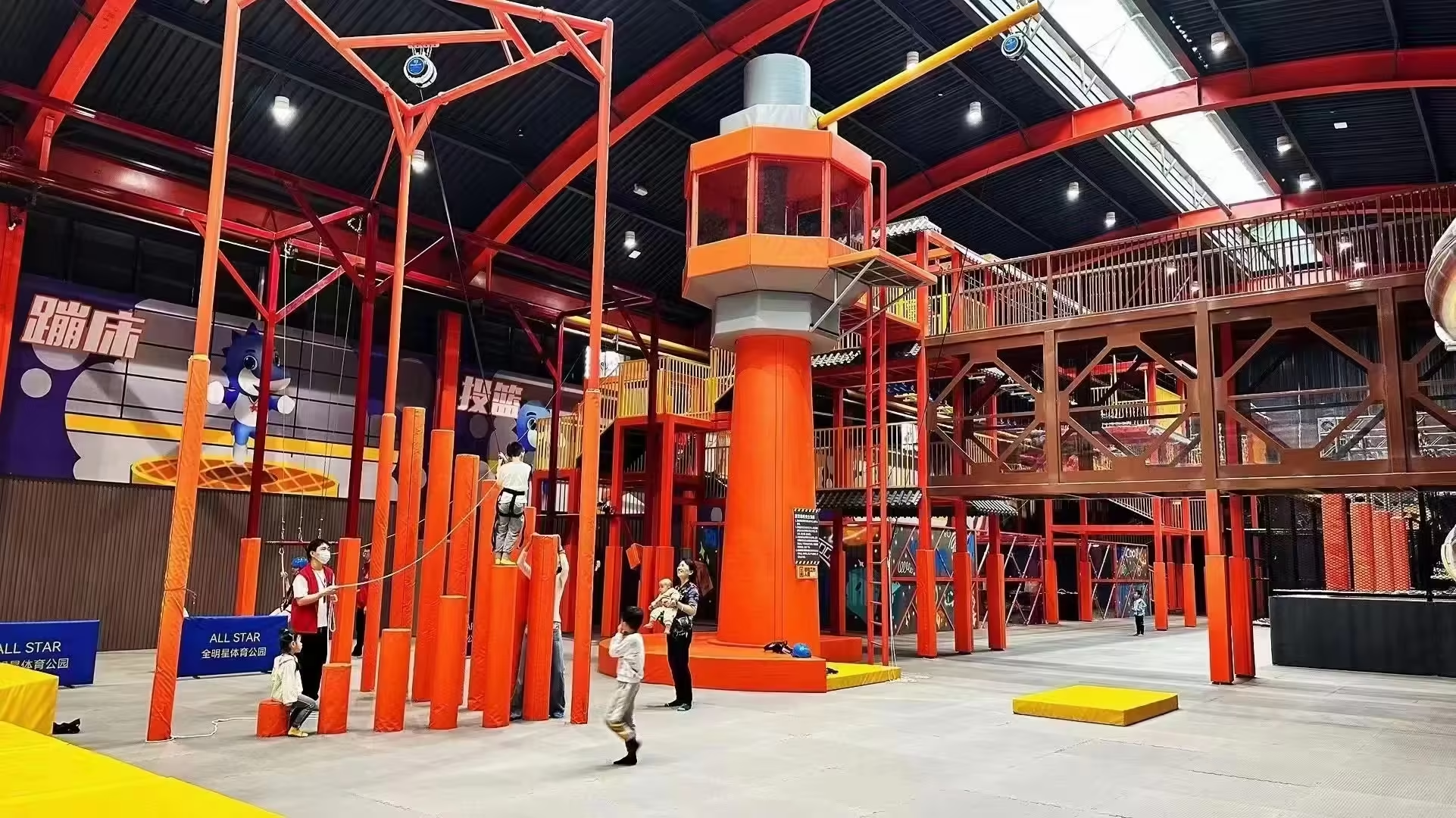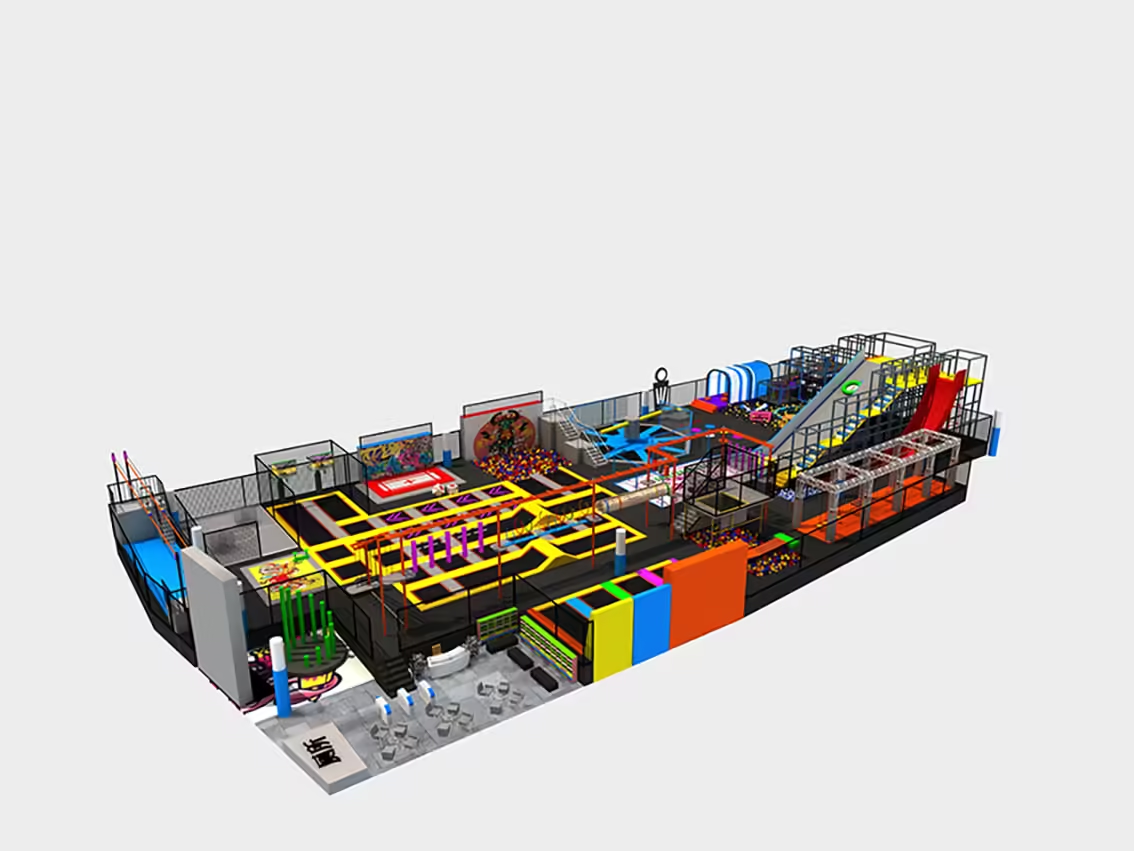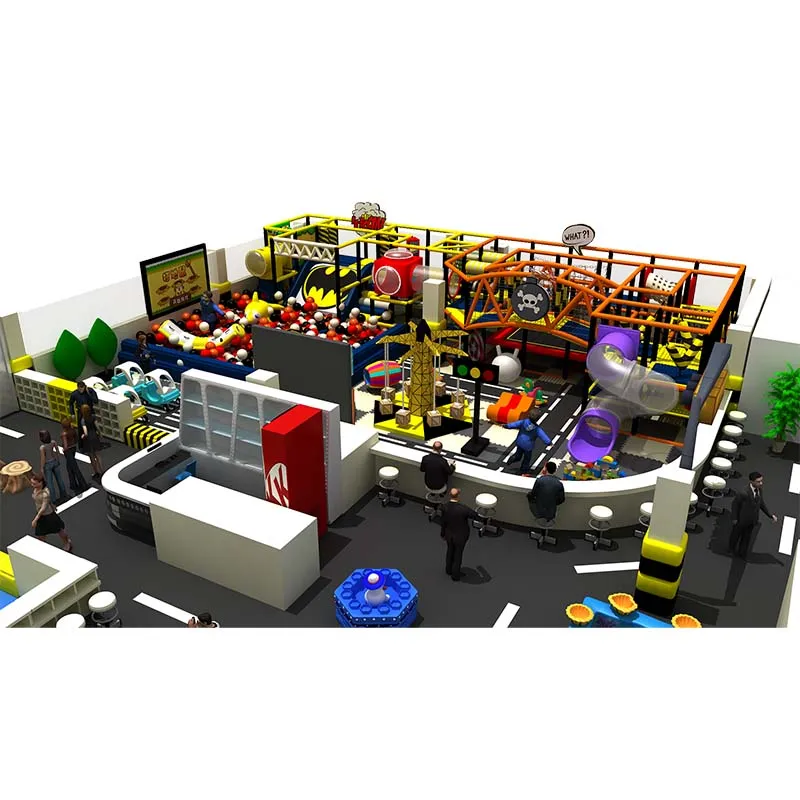Are you wondering how to open an indoor playground that attracts families, generates steady income, and stands out in your community?
With rising demand for safe, screen-free activities for children, indoor playgrounds have become a high-potential business opportunity—offering year-round fun and reliable revenue. In this complete guide, we’ll walk you through everything you need to know about opening an indoor playground—from costs and planning to location, equipment, and software tools.
Whether you’re an entrepreneur or a parent with a business dream, read on to learn how to open an indoor playground that succeeds.
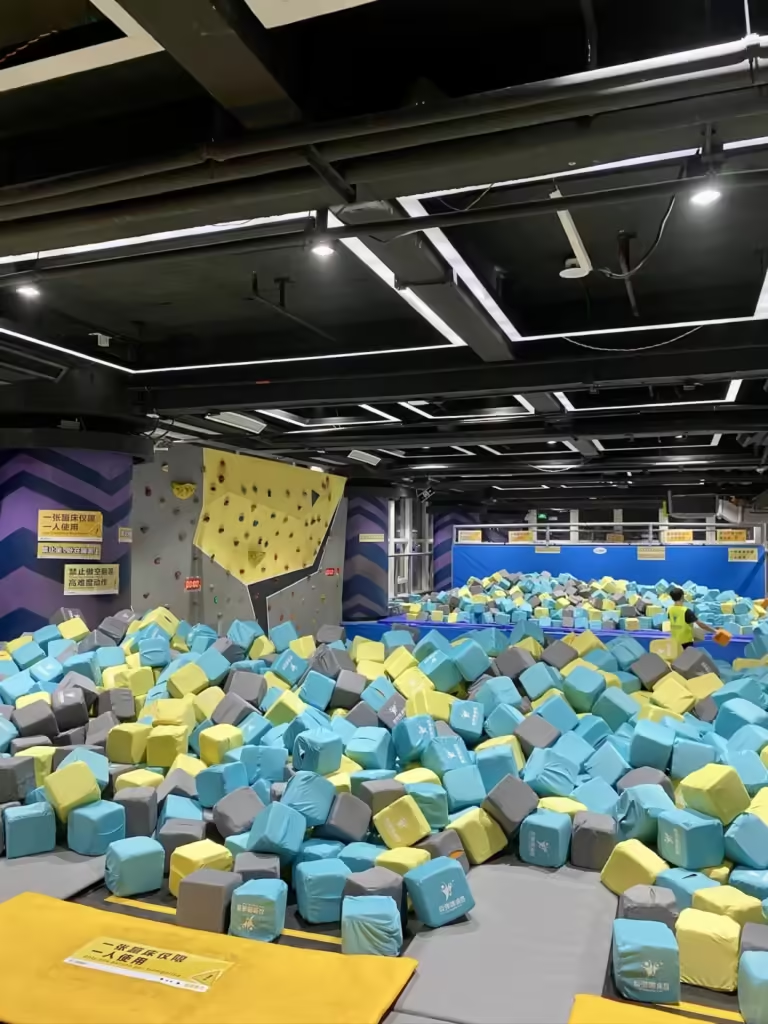
What Is an Indoor Playground Business?
An indoor playground is a climate-controlled play space where children can safely explore, climb, and interact regardless of the weather. These facilities typically feature:
- Soft play structures and foam zones
- Ball pits and climbing walls
- Themed zones and sensory areas
- Birthday party rooms and cafés for parents
Unlike outdoor venues, indoor playgrounds can generate revenue all year long—and with the right business strategy, they can become a go-to destination for families, schools, and local events.
Why Start an Indoor Playground Business?
If you’re researching how to open an indoor playground, understanding the why behind it is essential. Here are the key reasons many entrepreneurs pursue this venture:
✅ Growing Demand
Today’s parents seek safe, clean, and active alternatives to screens. Indoor playgrounds offer structured physical activity, making them attractive to:
- Families with young children
- Schools and daycare centers
- Event organizers and birthday planners
✅ Year-Round Income
Indoor playgrounds aren’t affected by seasonal weather, giving you a steady stream of revenue 365 days a year. Rain or shine, your business stays open and earns.
✅ Multiple Revenue Streams
You can generate income from:
- Daily admissions
- Membership programs
- Birthday and event bookings
- Food and beverage sales
- Classes and enrichment programs
How to Open an Indoor Playground in 6 Key Steps
Step 1: Conduct Market Research
Before launching, study your local area to assess feasibility.
- Demographics: Are there enough families nearby? What are the common age groups and income levels?
- Competition: How many indoor playgrounds exist in your area? What do they offer, and what gaps can you fill?
- Trends: Popular trends include sensory play zones, themed events, and digital membership programs.
Use this data to validate your idea and tailor your business strategy accordingly.
Step 2: Build a Business Plan
A solid business plan can help secure funding and guide your decisions. Include:
- Business overview: Vision, mission, and structure
- Services: Play zones, parties, café, memberships
- Marketing plan: How you’ll attract visitors (e.g., social media, Google Ads, local events)
- Revenue model: Pricing, packages, and upsells
- Financial forecast: Costs, income projections, and break-even timeline
- Risk management: Safety, liability, and local compliance
Step 3: Choose the Right Location
Your location can directly impact your success. Look for:
- High-traffic visibility (near malls, schools, or residential neighborhoods)
- Adequate space—at least 5,000 to 20,000+ sq. ft.
- Good parking and easy access for families
- Zoning and safety compliance
Nearby family-friendly businesses (e.g., cafes, schools) can help boost walk-in traffic.
Step 4: Secure Permits and Licenses
Depending on your local laws, you’ll likely need:
- Business license
- Zoning and occupancy permits
- Health and fire safety approvals
- Building permit (for renovations)
Start this process early—it can take several weeks or even months.
Step 5: Purchase Indoor Playground Equipment
Choose age-appropriate, safe, and engaging play structures. Essentials include:
- Soft play zones and obstacle courses
- Slides, tunnels, climbing frames
- Toddler-friendly zones
- Safety flooring and rubber mats
- Party room furniture and parent seating
Pro tip: Source from certified manufacturers who meet international safety standards.
Step 6: Invest in the Right Management Software
Operational software is crucial for efficiency. Look for features such as:
- Online ticketing and memberships
- Digital waivers
- Party booking system
- POS integration for cafés and merchandise
- Automated feedback collection
All-in-one platforms like ROLLER or Party Center Software can streamline bookings, reduce admin work, and improve guest satisfaction.
How Much Does It Cost to Open an Indoor Playground?
Start-up costs for an indoor playground typically range from $50,000 to $500,000, depending on:
- Location and lease rates
- Renovation and build-out expenses
- Equipment purchases
- Staffing and training
- Marketing and brand development
- Insurance and legal compliance
Urban areas might have higher rent but more traffic; rural locations are cheaper but may need more aggressive marketing.
Profit Potential: Are Indoor Playgrounds Profitable?
Yes—if well-managed. On average, indoor playgrounds can break even within 12 to 24 months and yield profit margins of 20–35%, especially if you diversify income through memberships, parties, and food services.
Smart operators maximize usage during:
- Weekday mornings (toddler groups)
- Afternoons (after-school traffic)
- Weekends (parties and events)
- School holidays (camps or extended hours)
Final Thoughts
Learning how to open an indoor playground is just the first step. The key to long-term success lies in:
- Understanding your audience
- Offering an unforgettable guest experience
- Using the right tools to manage and grow your operations
By following the steps in this guide, you’ll be well on your way to opening a vibrant, profitable indoor play center that kids love and parents trust.
